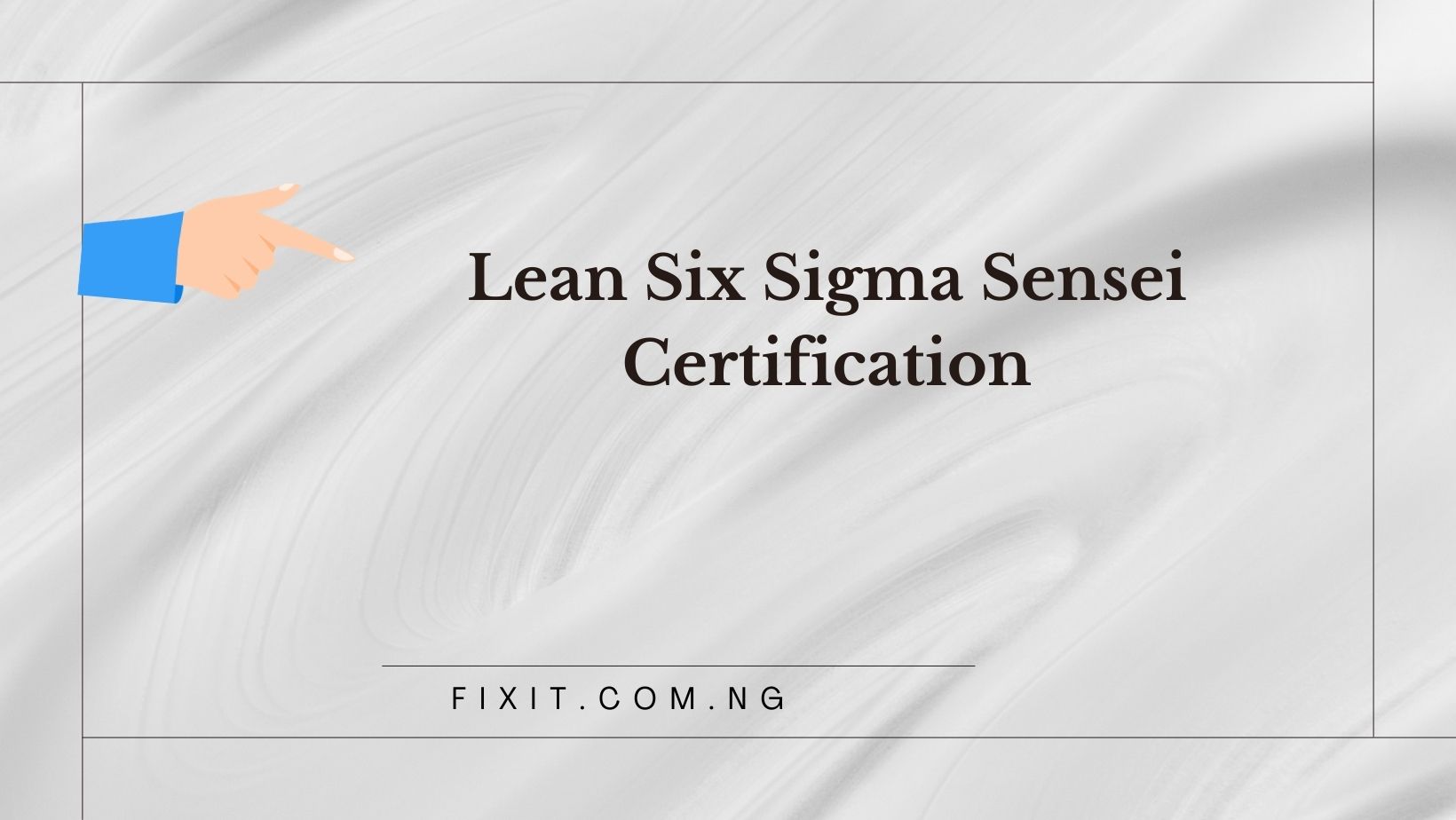Lean Six Sigma certification provide professionals with an opportunity to showcase their knowledge in their respective field. Each level of certification requires specific levels of work experience.
Lean Six Sigma Green Belt certification requires an introductory course and process improvement project, while Black Belt requires extensive experience leading projects.
What is a Sensei?
A sensei is an expert in Lean Six Sigma who not only masters it, but can teach others too. The term originates in Japanese sen and sei, which can be translated to “one who has gone before”, symbolically meaning someone who embodies their teaching.
A true sensei is an inspirational teacher who can motivate their students to achieve greatness. Their qualities should include empathy, integrity and wisdom; in addition to this ethical behavior toward all those whom they interact with; they are humble yet patient and can guide students through difficult times; additionally they are inspiring and passionate about martial arts as a field.
Senseis excel at organizing Kaizen events, which involve short bursts of intense activity that bring people together to solve problems. Kaizen events frequently include employees involved directly in the process as well as support staff and managers; their expertise lies in identifying issues and generating solutions that increase productivity and efficiency.
Executives often seek guidance in explaining and buying-in to Six Sigma projects from executives. Six Sigma senseis can also aid project teams during DMAIC phases and assist with data analysis/statistical tools like FMEA/MSA/GR&R analysis/GR&R regression/hypothesis testing as well as control plans.
What is a Sensei’s Role?
A sensei is an essential element in understanding and applying Lean Six Sigma principles. A great sensei is an expert in all areas of Lean, helping students grasp its methodologies while remaining impartial to internal politics or powerful personalities that might inhibit change efforts.
A good sensei will take great care to understand their students’ difficulties and to offer counsel when necessary. He or she should also be capable of coaching and training their pupils safely during training sessions by applying principles of human performance. A sensei will also keep up to date on new knowledge to enhance his or her teaching techniques.
When selecting a sensei, it is crucial that they possess an outstanding track record of achievement. A Master Black Belt Sensei with considerable experience will offer a quality learning experience and show you how to implement Lean Six Sigma principles into business operations for maximum gains.
Sensei Rachel brings over two decades of results-oriented process improvement and project management experience, successfully leading projects that bring sustainable improvements to operational processes in healthcare, manufacturing and service-related industries. Trained and certified to lead Lean Six Sigma projects worldwide, she has helped companies save billions by adopting Lean Six Sigma methodology.
What is a Sensei’s Job Description?
A sensei’s primary task is to encourage managers to think deeply about their business and how it may develop (lean thinking stresses customer needs as the basis of all decisions). This can be difficult for many managers who find themselves pulled into fire fighting on an everyday basis; to encourage new ideas by applying Deming’s Plan-Do-Check-Act (PDCA) cycle on daily concerns is where Senseis excels.
An important role of Senseis is getting managers out of their offices and onto the shop floor in order to witness first-hand how things operate – this is known as “going to gemba.” At Toyota, Taiichi Ohno used this practice by placing footprints at specific operations on the factory floor and instructing managers to stand there for hours, sometimes days if necessary in order to fully grasp how they worked.
Senseis can also help managers simplify lean principles into tangible steps they can apply in their businesses, like posting a list of “no go” items at each machine (similar to Toyota Andon system).
Senseis are experienced teachers and leaders who can teach other leaders to find leaner solutions to workplace challenges, along with their employees.
What is a Sensei’s Certification?
Sensei, Japanese for “master,” refers to leaders of martial arts classes who are considered experts in their field. Lean Six Sigma also counts on senseis as experts who can assist organizations improve processes while passing along their knowledge to their company and others within.
One of a Sensei’s key strengths lies in organizing and leading Kaizen Events – intense bursts of work designed to bring people from various parts of an organization together and address specific problems quickly and efficiently. A skilled Sensei can organize and lead these events efficiently; their impactful effects on improving quality work in organizations are immense.
Certification as a Six Sigma sensei is vital in order to demonstrate their knowledge of this process and coach others within an organization, including Black Belts and Green Belts on how best to implement Six Sigma techniques.
Simplilearn provides an online Lean Six Sigma course that comes complete with certification, covering definitions and tools used in all phases of the DMAIC process – Define and Measure, Foundational Statistics, Analyze, Optimize & Control with particular attention being given to correlation and regression analyses.

